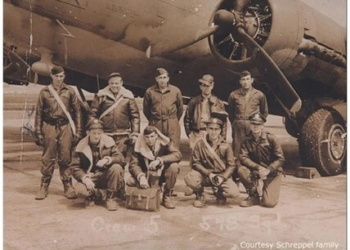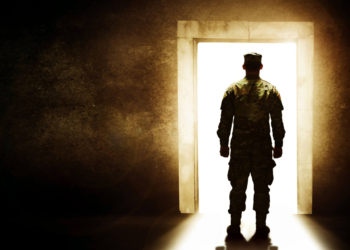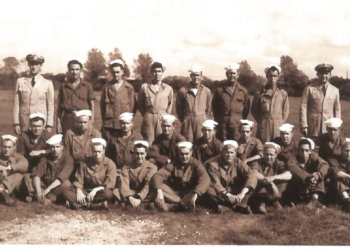Transitioning from military to civilian life can create money challenges, but the Veterans Benefits Banking Program’s (VBBP) personal financial tools and money management resources, including access to free bank and credit union checking accounts, can help veterans keep their financial matters in order.
“There are things about banks and credit unions serving the military and veteran communities that are very different from banks serving outside the fence line or serving customers that aren’t military veterans,” said retired Air Force Maj. Gen. Steven Lepper, Association of Military Banks of America (AMBA) president and chief executive officer. “Serving these communities requires a particular understanding of the financial challenges of the veteran and military communities.”
AMBA partnered with the U.S. Department of Veterans Affairs Veterans Benefits Administration (VBA) in 2019 to create the VBBP, which ensures veterans and their beneficiaries can receive their VA benefits via direct deposit into low-cost accounts at any of 40 participating banks and credit unions nationwide.
The VBBP’s website provides links to all participating banks and credit unions. Since its inception, the VBBP program has reduced by 175,000 the number of “unbanked” veterans.
Veterans without a banking relationship receive benefit payments through a Direct Express® prepaid card or U.S. Treasury-issued paper check. But the estimated 250,000 veterans who use those options often are victims of delayed, lost or stolen funds. Each year, more than 1.5 million paper checks from the federal government go uncashed, which is why VA and AMBA joined forces to encourage veterans to open a bank account as a first step toward financial independence.
“It’s very clear that managing your money through a financial institution where your money is insured by the Federal Deposit Insurance Corporation (FDIC) or the National Credit Union Administration (NCUA) is by far the safest way to save and manage money,” Lepper said. “The protections that surround bank and credit union accounts are better than those that surround any other products, whether they are debit cards or paper checks.”
VBA Chief Financial Officer Charles Tapp says veterans receiving benefit payments through Direct Express® or paper checks are encouraged to switch to direct deposit. Veteran service organizations and VA call centers also stress the importance of direct deposit to transitioning service members.
VBBP participating banks and credit unions not only are committed to offering veterans no-cost or low-cost accounts, but also will help veterans overcome legal issues or credit problems that might have previously stopped them from opening a checking or savings account.
“This consortium of banks and credit unions are well aware of those challenges and are certainly willing to work with veterans on an individual basis to potentially get past those issues,” Tapp said.
While the VBBP was created to reduce the number of unbanked veterans, its outreach efforts have grown to include a wealth of financial literacy programs, tools and resources geared toward veterans. The VBBP has partnered with the Military Family Advisory Network to build www.VetCents.org, a financial-education platform that provides veterans and their family members expert advice on topics such as budgeting, saving, credit, investing and homebuying, as well as links to additional resources.
Veterans seeking credit or financial counseling have access through the National Foundation for Credit Counseling and the Association for Financial Counseling and Planning Education® to a free consultation with a certified credit counselor or an accredited financial counselor.
A credit counselor can help a veteran avoid foreclosure or eviction, qualify for a first-time home purchase or get out of debt, while a financial counselor can assist with creating a budget or debt-reduction plan, saving for a home purchase or preparing for life transitions such as a new job, birth of a child, return to school or retirement.
“The VBBP is not just a program to encourage veterans to manage their money through financial institutions,” Lepper said. “It’s also a program to help them understand their financial issues and deal with them in a better way through tailored financial counseling.”
Service members and veterans always will face unique financial challenges, but the third year of the COVID-19 pandemic has brought an added layer of potential difficulties. Lepper notes the combination of high inflation rates and the end of pandemic-based rent moratoriums and government-funded stimulus checks has increased veterans’ need for low-cost banking services and improved financial literacy.
“As we enter these difficult financial times, veterans will see that it is even more imperative that they hold on to every penny they get from the government,” Lepper said, “and if they want to do that effectively, they’ll do it by using bank or credit union accounts rather than other forms of money management.”







































